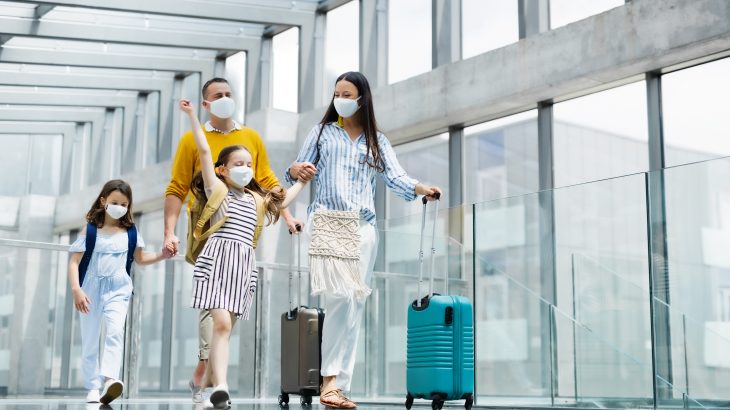An increasing number of clients are contacting us to ask whether they need to be vaccinated to travel to the United States. President Biden has mandated that most foreign nationals visiting the United States will need to show proof of vaccination from Covid-19 when global travel to the USA opens up on November 8. However, some exemptions will apply.
Which vaccines are accepted for travel to the United States?
Most foreign nationals entering the United States on a non-immigrant visa or as a tourist must show proof of vaccination. The US will accept a wider range of vaccines than just those approved by the US Food & Drug Administration (FDA) (Pfizer BioNTech, Moderna, Janssen). The list of vaccines accepted for inbound travel is expanded to include all World Health Organization vaccines, which includes AstraZenaca, Covishield, Sinopharm and Sinovac. The Sputnik vaccine is not currently approved by the WHO and therefore not currently accepted for travel.
Are Green Card Holders subject to US Vaccination Requirements for Travel?
US Permanent Residents (Green Card holders) are not subject to the vaccination requirements to enter the United States. However, there are testing requirements to travel. Most of our clients have obtained US permanent residency through the EB-1c Visa (International Managers & Executives), EB-1A Visa (Extraordinary Talent), and EB-5 Visa (Green Card by Investment of $500,000).
Are There Exemptions from the Vaccine Requirements for Travel to the United States?
The US authorities has published a list of exemptions from the vaccination requirements. This includes:
- Anyone from a country that has limited (<10%) vaccine coverage.
- Anyone under the age of 18
- Anyone who can document a medical reason they cannot be vaccinated against Covid-19
- Anyone granted a humanitarian exception to enter the US
- Anyone deemed in the national interest of the United States
- There are also exemptions for diplomats, military families and sea crew.
How does the exemption for countries with limited vaccine coverage work?
Anyone from a country with a vaccine coverage of less than 10% is exempt from showing proof of vaccination at the border. There are currently 50 countries on this list. See list of eligible countries. The list is subject to change as vaccination rates improve. There is still ultimately a requirement for these people to get vaccinated once inside the United States. Please note, this exemption does NOT apply to anyone on an B-1 or B-2 Visa.
Does the exemption apply to L-1 Visa holders and E-2 Visa holders?
Our firm has filed many L-1 and E-2 Visa applications on behalf of clients during Covid. These business migration visas are categorized as “non-immigrant visas” and are therefore NOT exempt from the vaccine requirement. If you are currently inside the US on one of those visas and subsequently leave and attempt to return, you will need to show proof of vaccination status. If you are currently outside the United States with an approved or pending L1 Visa or E2 Visa application you will need to show evidence of vaccination.
The aforementioned list of exemptions apply to L-1 and E-2 Visa holders . So children on E-2 Derivative Visas or L-2 Visas are exempt provided they are under 18 (you can bring dependent children with you to the US on both E-2 and L-1 provided they are under the age of 21.) You may also be eligible for an exemption if you are from a country with low vaccine uptake.
The L-1 Visa allows you to move staff to an existing or newly-established office of your overseas business. The E-2 Treaty Investor Visa allows people from Treaty Countries to move to the US for the purposes of investing in and operating a business.
I do not want to get vaccinated, what are my options?
It is not clear how long the vaccine requirement will remain in place. The processing times for non-immigrant visa application are usually relatively quick. Since Covid-19 has caused closures and slowdowns at US embassies and at the US Citizenship & Immigration Services (USCIS), processing times have increased. Anyone considering an application today, may find that current waiting times will exceed the vaccine rules. But there is no guarantee of this. As with everything during Covid, uncertainty abounds. An alternative is to seek a permanent residency option. The EB-5 Visa (Green Card by investment) is one of the most popular among our clients especially as the minimum investment requirement dropped to $500,000 in June. Yet processing times for permanent residency take longer than for non-immigrant visas.
This article is published for clients, friends and other interested visitors for information purposes only. The contents of the article do not constitute legal advice and do not necessarily reflect the opinions of Davies & Associates or any of its attorneys, staff or clients. External links are not an endorsement of the content.


























